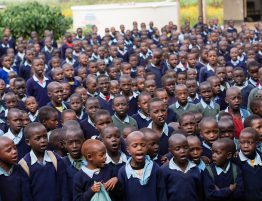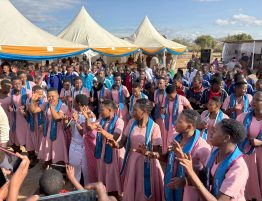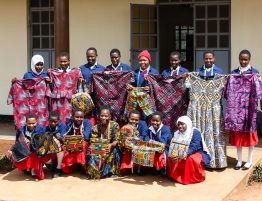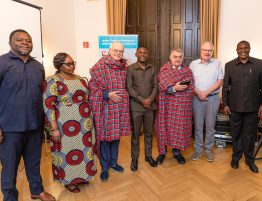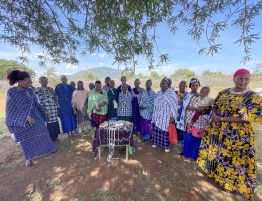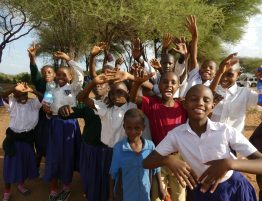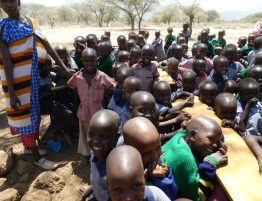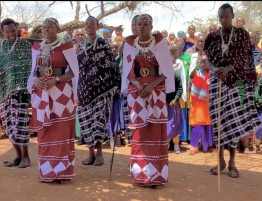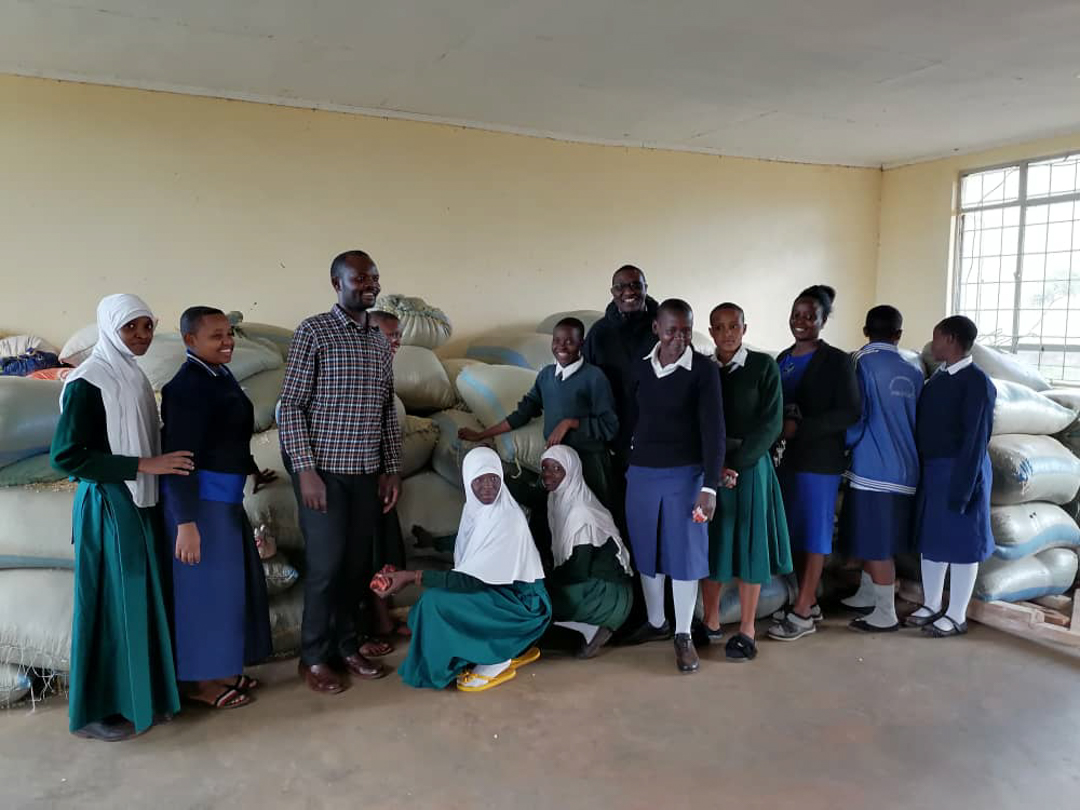
In this newsletter, we would like to present some of ECLAT’s newer projects which, except for the first one, fall under the heading of “capacity building”. This includes ECLAT’s women’s empowerment work, but we have reported on this many times before.
Maize and beans for starving students
After months of drought since last May, the rains did not start until early February, two to three months late, leaving an estimated 90% of the grazing animals in Simanjiro and neighbouring districts starving. As the Maasai depend on their livestock for their livelihood, hunger often set in and many parents stopped sending their children to school because they could no longer afford to feed them. We are happy that thanks to the support of three foundations, we were able to deliver a total of 71 tons of maize and 18 tons of beans to 11 schools in February and April, so that children from poor backgrounds could continue to go to school. ECLAT had selected the schools according to need. Maize and beans are the staple food in Tanzania’s schools all year round. Students, parents and the local government expressed their gratitude for this support. The number of children at the schools increased rapidly: The children not only came to eat, but were also able to attend classes again. The amount of maize and beans supplied was sufficient until the new harvest in the middle of the year.
Family planning campaign for the men
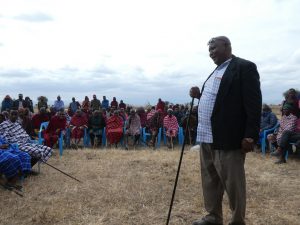
The traditional Maasai leader speaks in Loosiririmi on the need for family planning
In Maasai culture, the upbringing and feeding of the children lies entirely with the women. It is not uncommon for them to have 8 to 10 or even more children and find it difficult to feed and care for them adequately. The women recognise their situation and ask for family planning options. Therefore, the topic of family planning is naturally also on the agenda of ECLAT’s women’s work at the seminar centre. Some women seek help from the state health services – often secretly, because the men do not cooperate. ECLAT has therefore started a campaign for the acceptance of family planning among men at the beginning of 2022. Together with a choir, ECLAT goes into the villages, singing stirring songs about the meaning and necessity of family planning for the Massai if they are to survive in the longer term and offer their children the chance of a better life. With positive results: at the opening events in two villages during our recent trips, a number of the village elders and traditional leaders spoke out in favour of the necessity and acceptance acceptance of family planning among men at the beginning of 2022. Together with a choir, ECLAT goes into the villages, singing stirring songs about the meaning and necessity of family planning for the Massai if they are to survive in the longer term and offer their children the chance of a better life. With positive results: at the opening events in two villages during our recent trips, a number of the village elders and traditional leaders spoke out in favour of the necessity and acceptance of family planning. And many women received discreet advice and treatment from the representatives of the local health stations, who also took part in the campaigns.
Sanitary pads for schoolgirls and women
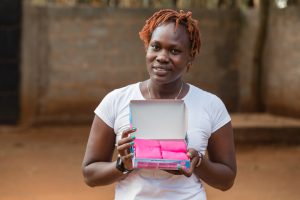
Marjorie from Gejja Women Foundation with a set of reusable sanitary towels
It is not uncommon for girls in developing countries not to go to school during their menstruation and thus miss a large part of their lessons, or they help themselves with unclean and unhygienic means. upendo and ECLAT therefore invited the head of the Ugandan women’s organisation Gejja to Emboreet to educate children, girls and young people alike, about menstruation, especially in schools, and to explain to the girls and young women how reusable and washable sanitary pads can provide them with hygienically safe use during these days. ECLAT was able to distribute a total of 1,000 packs of 2 sanitary pads to the girls and women during the events. And Gejja taught women’s groups from ECLAT how to sew such sanitary pads themselves. Perhaps this will become a new business model for one or more women’s groups.
Mentoring craft students
Due to the closing dates of the Vocational Training Center, the project will only start in the weeks to come. We want to support students after the completion of their vocational training when they settle down as craftsmen in the Simanjiro district. During their training, they will be prepared for this in supplementary seminars, and an experienced mentor will be available to advise and support them once they have completed their training. The best graduates will also receive a toolbox, which will enable them to start their careers independently.
Use of clean water
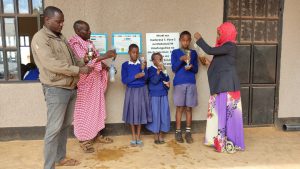
Students and teachers in Sukuro investigate the filtration of polluted surface water
In the past months, ECLAT in cooperation with PAULA and Image was able to hand over two more water filtration projects to the villagers, where hygienically clean drinking water is produced out of polluted lake water.
In parallel, staff from the Technical University of Aachen educated the villagers about the benefits of clean drinking water and health risks of untreated surface water. This was done in sessions with the village water committee, at the secondary school, at primary schools and with women’s groups at the women’s centre and on site. Many residents did not even know until then that the cause of many of their illnesses was the use of contaminated water.
Photos: Rüdiger Fessel (2021); Bakiri Angalia, Fred Heimbach, Manuel Krauß (2022)

